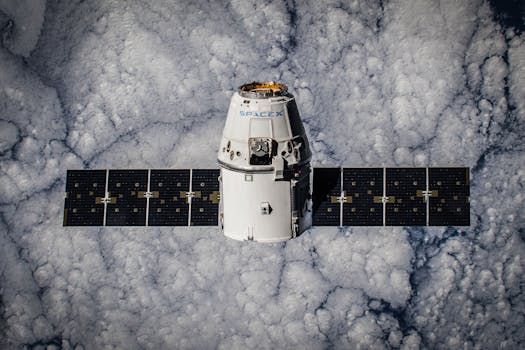
The Future of Satellites is an exciting and rapidly evolving field, with new advancements and innovations being made every day. As we look to the future, it is clear that satellites will play a crucial role in shaping the world of tomorrow. From providing global communication and navigation to enabling space exploration and scientific research, the potential of satellites is vast and varied.
At the forefront of the future of satellites is the development of new technologies and innovations. One of the most significant advancements in recent years has been the development of small satellites, also known as CubeSats. These tiny satellites, which are often no larger than a shoebox, are capable of performing a wide range of tasks, from providing communication services to conducting scientific research. The small size and relatively low cost of CubeSats make them an attractive option for many organizations and companies, and they are expected to play a major role in the future of satellites.
The Role of Satellites in Global Communication
Satellites have long played a critical role in global communication, providing a means of transmitting data and voice communications over long distances. In the future, this role is expected to expand, with satellites enabling the provision of high-speed internet and other communication services to even the most remote and underserved communities. The development of new satellite constellations, such as those being launched by companies like SpaceX and OneWeb, is expected to provide high-speed internet access to millions of people around the world, bridging the digital divide and enabling greater global connectivity.
In addition to providing communication services, satellites are also expected to play a key role in the development of new technologies, such as the Internet of Things (IoT). The IoT refers to the network of physical devices, vehicles, and other items that are embedded with sensors, software, and connectivity, allowing them to collect and exchange data. Satellites will be critical in enabling the IoT, providing the connectivity and communication services needed to support the vast network of devices that will make up the IoT.
The Future of Space Exploration
Satellites are also expected to play a major role in the future of space exploration. As space agencies and private companies like NASA, the European Space Agency, and SpaceX look to explore deeper into space, satellites will be critical in providing the communication and navigation services needed to support these missions. The development of new satellite technologies, such as advanced propulsion systems and more efficient power sources, will be essential in enabling the long-duration space missions that will be necessary for deep space exploration.
In addition to supporting deep space missions, satellites will also be used to explore and understand our own planet. Earth observation satellites, which are used to study the Earth’s climate, weather patterns, and natural resources, will continue to play a critical role in helping us to better understand our planet and the impact of human activity on the environment. The development of new Earth observation satellites, such as those being launched by companies like Planet Labs and DigitalGlobe, will provide even more detailed and accurate data, enabling scientists and researchers to make more informed decisions about how to protect and preserve our planet.
Challenges and Opportunities
While the future of satellites is exciting and full of potential, there are also challenges and obstacles that must be overcome. One of the major challenges facing the satellite industry is the issue of space debris, which refers to the accumulation of old satellites, rocket parts, and other objects in Earth’s orbit. Space debris poses a significant threat to the safety and operation of satellites, and it is essential that steps are taken to mitigate this problem.
Another challenge facing the satellite industry is the issue of regulatory frameworks and international cooperation. As the use of satellites becomes more widespread, it is essential that governments and international organizations work together to establish clear and consistent regulatory frameworks that will enable the safe and responsible use of satellites. This will require cooperation and collaboration between governments, industry, and other stakeholders, and it will be essential in ensuring that the benefits of satellites are realized while minimizing the risks and challenges.







